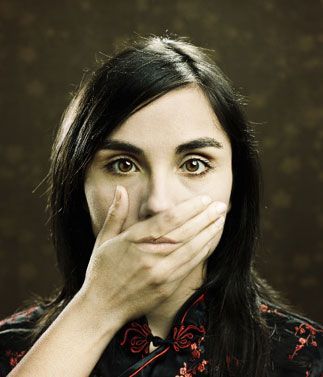Blog Layout
What is Coercive Control and Why Does It Matter?
Beverley Stewart • July 7, 2024
What is Coercive Control?

With domestic violence reports on the news every week now, we’re hearing the term coercive control more often. Let’s be honest, some of us just aren’t sure about what it is and why it’s dangerous. Here we examine how it shows up, the impacts it can have, and how to get help.
Definition: Coercive control is a pattern of behaviour designed to dominate and manipulate another person. Unlike physical violence, coercive control can be insidious and harder to recognize, yet it is just as damaging. Coercive control can have profound psychological effects. It can lead to anxiety, depression, post-traumatic stress disorder (PTSD), and a loss of self-identity. This constant fear and manipulation can erode self-confidence and create a sense of helplessness and hopelessness.
Maybe you’ve experienced coercive control in the past. Maybe you’re sensing some red flags right now. Or maybe you know someone that you’re worried about. By increasing our awareness about what coercive control is, how it affects us, and how we can recognise it, we can be part of the movement to end it.

It’s A Crime
From July 1 2024, in NSW coercive control (within an intimate partner relationship) is now a criminal offence. If convicted, abusers can face up to 7 years imprisonment. This has been legislated in an effort to reduce the number of homicides resulting from domestic violence. NSW Police state that in 97% of the cases of domestic violence related homicides, coercive control was experienced by victims before they were killed. Hopefully other states across Australia will be heading in the same direction soon.

What Behaviours Constitute Coercive Control?
Coercive control involves a range of behaviours aimed at making a person dependent on their abuser. This may be by isolating them from support, exploiting them, depriving them of independence, and regulating their everyday behaviour. It can show up in various forms, including:
- Isolation: Limiting contact with family and friends.
- Monitoring: Constant surveillance of activities, communications, and whereabouts.
- Manipulation: Using guilt, threats, or deception to control.
- Financial Control: Restricting access to money and financial independence.
- Emotional Abuse: Undermining self-esteem, inducing fear, or playing mind games.
How Do You Recognise Coercive Control?
The challenge with recognizing coercive control is that it can involve very subtle and covert behaviours that might not be perceived as harmful by those outside the relationship. Only those who are experiencing coercive control understand the damage that is inflicted by this constant and targeted manipulation over time. Identifying coercive control can be difficult as it often starts very subtly but escalates over time. Here are some signs to look out for:
- Excessive Jealousy: Your partner is overly suspicious or accusatory without reason.
- Constant Criticism: They criticize or belittle you regularly, making you doubt your worth.
- Isolation: They discourage or prevent you from seeing friends or family.
- Gaslighting: They make you question your reality or memories. They say you are crazy.
- Control Over Daily Life: They dictate what you wear, where you go, or who you see.
- Threats and Intimidation: They use threats or intimidate you to get their way.

What’s the Impact of Coercive Control?
Coercive control often leaves invisible scars. Unlike physical abuse, which can leave visible marks, coercive control is a destructive form of abuse that chips away at a person's sense of self, autonomy, and dignity. Below are some of its major impacts.
Psychological and Emotional Impact:
Coercive control is a form of psychological abuse that can lead to severe mental health issues. We can often experience anxiety, depression, post-traumatic stress disorder (PTSD), and a pervasive sense of fear. This constant manipulation and control can lead to:
- Chronic Anxiety and Hypervigilance: We can live in a state of constant alertness, always anticipating the next controlling behaviour or outburst. This chronic stress can also lead to long-term health issues including insomnia, digestive problems, and cardiovascular disease.
- Depression and Hopelessness: The relentless erosion of our self-worth can result in deep, persistent depression. We can often feel trapped and powerless, believing there is no escape from our abuser's control.
- Loss of Identity and Self-Esteem: Coercive control systematically dismantles our sense of self. We may feel we have lost our identity, becoming merely an extension of our abuser's will. This loss can be overwhelmingly disorienting and damaging, making it difficult for us to reclaim our lives even after the abuse has ended.
(Read more about "How Does Abuse Affect Mental Health" by clicking here.)

Social Isolation
One of the most sinister aspects of coercive control is the deliberate isolation from friends, family, and support networks. This isolation serves to increase the our dependence on the abuser and diminishes our ability to seek help. Over time, we may feel completely cut off from the outside world, with no one to turn to for support or validation.
Economic Abuse and Dependence
Coercive control often includes economic abuse, where the abuser exerts control over all our financial resources. This can include restricting access to money, restricting us from working, or closely monitoring our spending. The result is a state of financial dependence that makes it exceedingly difficult for us to leave the relationship. Economic abuse not only strips away financial independence but also further entrenches our feeling of helplessness and entrapment.
Impact on Children:
Children who grow up in environments where coercive control is present are also deeply affected. They may experience:
- Emotional and Behavioural Issues: Children in these environments often exhibit anxiety, depression, and behavioural problems. They may struggle with anger, withdrawal, or acting out in school and other social settings.
- Normalization of Abuse: Witnessing coercive control can lead children to believe that such behaviors are normal in relationships. This can perpetuate a cycle of abuse, as they may either become abusers or victims in their future relationships.
- Developmental Challenges: The stress and instability caused by living under coercive control can hinder a child's cognitive and emotional development, impacting their performance in school and their ability to form healthy relationships.

Long-term Effects:
The long-term effects of coercive control can linger long after the abusive relationship has ended. Survivors often face a long road to recovery, which may include:
- Rebuilding Trust: After enduring manipulation and betrayal, survivors may find it challenging to trust others, even those who genuinely care about them.
- Restoring Autonomy: Regaining a sense of autonomy and independence is a crucial part of recovery. Survivors need to relearn how to make decisions for themselves and regain control over their own lives.
- Healing Psychological Wounds: Therapy is often necessary to address the deep psychological wounds inflicted by coercive control. This healing process can be lengthy and requires a supportive, empathetic approach to help survivors rebuild their self-esteem and sense of worth.

What Can You Do If You Suspect Your
Being Coercively Controlled?
- Trust Your Instincts: If something feels wrong, it probably is. Trust your gut feelings.
- Reach Out for Support: Talk to trusted friends, family, a professional counsellor, or support organisations. Try to build yourself a support network of people you can trust that can offer emotional support and practical help if needed. This is so important when feeling alone.
- Document Everything: Keep a record of any incidents or behaviours that make you feel uncomfortable or controlled. This documentation may be useful if you decide to seek legal or professional assistance. Keep a record of incidents, including dates, times, and details.
- Educate Yourself: Learn more about coercive control and its impacts. Organisations like domestic violence shelters or hotlines can often provide resources and information.
- Create a Safety Plan: This might include identifying safe spaces in the home, setting aside money, and planning how to exit the situation if necessary. If you decide to leave the relationship, plan ahead to ensure your safety. Organise a safe place to stay, arrange for financial support. Your counsellor or support organisation can assist you with safety planning.
NOTE: The most dangerous time in an abusive relationship is when you decide to leave. This can escalate abusive behaviours and lead to violence. Speak to a professional about safety planning. Always call Police 000 if you feel you are in danger.
- Legal Options: Research legal options available to you, such as obtaining a restraining order. Seek advice from a legal service who specializes in family law or domestic violence to understand your options and rights.
- Seek Professional Help: A counsellor can provide support and help you develop strategies to regain control. Also see the support organisations below.

Where to get Help
You are not alone, and there are resources and professionals ready to support you 24/7. There are many services out there to help you. These include counselling and emotional support, legal advice, paid employment leave, and financial assistance, goods and services to help you leave the relationship if that is your decision. Reach out to one of the many Australian services to get support if you are experiencing coercive control:
- 1800RESPECT: National sexual assault, domestic and family violence counselling service. Call 1800 737 732 (WebChat, SMS and video counselling also available)
- Lifeline: Crisis support and suicide prevention services. Call 13 11 14.
- Women's Legal Services: Free legal advice for women experiencing domestic violence. You may find it helpful to find out about your legal rights, AVOs (protection orders), separation/divorce processes, child custody matters, shared finances and assets, etc. Contact 1800RESPECT for contact numbers in your state.
- Domestic Violence Crisis Service: These services provide crisis intervention and support services such as accommodation, case management, court support etc. Contact 1800RESPECT
- Professional Counselling: Therapy gives you a safe space to share what's happening, deal with the trauma go through some safety planning, and focus on a way forward.
In The End
Coercive control is a serious issue that affects many women across Australia. Remember, no one deserves to live under the shadow of control and manipulation. Your freedom, autonomy, and happiness are worth fighting for. Increasing awareness, recognising the signs, and understanding the impacts of coercive control are the first steps toward reclaiming your independence and well-being.
Know that you are not alone, and there are support services and professionals ready to help you through this. If you or someone you know is experiencing coercive control, take a courageous step and reach out for help – you deserve a better life where you can feel safe, happy and free.
To find out more about Relationship Counselling click here. Or go to Contact Page to make an enquiry.

In the spirit of reconciliation, Beverley Stewart - Counselling / Psychotherapy / Groups acknowledges the Traditional Custodians of country throughout Australia and their connections to land, sea and community. We pay our respects to their Elders past and present and extend that respect to all Aboriginal and Torres Strait Islander peoples today.









